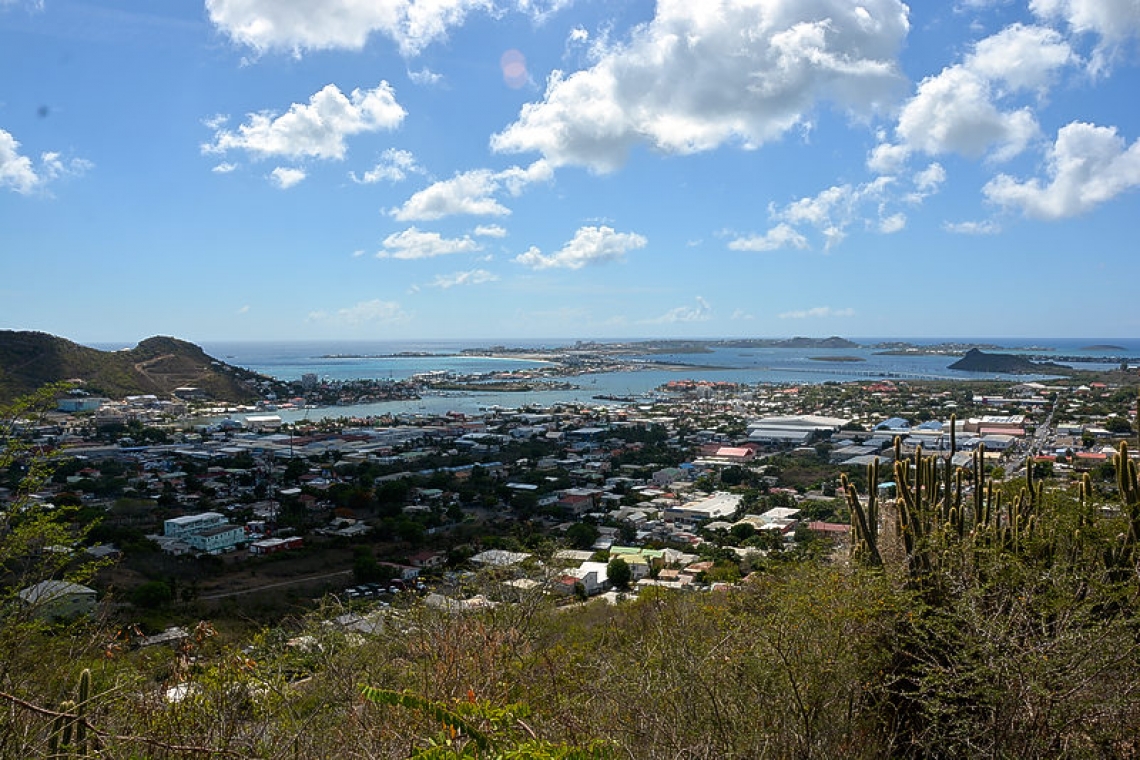PHILIPSBURG--Vessels in Simpson Bay Lagoon are no longer allowed to conduct fuel bunkering and provisioning activities as of midnight Tuesday, March 24.
Prime Minister and Emergency Operations Center (EOC) Chairperson Silveria Jacobs decided to discontinue the activities as a result of infringements. Provisioning and fuel bunkering will only be allowed if the vessel is already docked at a facility that provides these services such as a marina or docking location.
“It was brought to the attention of the EOC on Tuesday that procedures were not being followed in accordance to the directives that were stated before in order to protect the external borders of the country,” Jacobs said in a press release issued early Wednesday morning.
“Due to the non-compliance, vessels who require fuel bunkering and food provisioning will have to do this at Port St. Maarten, which has a sterile port protocol in place. The current COVID-19 situation dictates that vessels and/or third parties have to follow the rules that have been set in these extraordinary times. Government has a responsibility to protect the safety and health of the people of St. Maarten.
“The country is in a partial lockdown and therefore measures have been taken as part of our preparedness, response and mitigation measures towards COVID-19, and to ensure this the rules will have to be complied with and I am sure that those concerned will also agree with me.”
The travel restrictions for shippers and mariners went into effect as of at 11:59pm Atlantic Standard Time on March 24. After this date, no foreign vessels (exemptions applied) will be allowed in the territorial waters of St. Maarten until further notice. This includes but is not limited to pleasure vessels, fishing vessels, passenger vessels, huckster boats, mega-yachts, sailing yachts and catamarans, etc.
Applicable exemptions include that locally-registered leisure vessels are permitted to operate in the waters of St. Maarten providing that there are four or fewer persons (including captain) on board; fishing vessels from Saba and St. Eustatius are allowed entry into the territorial waters of St. Maarten, but should contact the Immigration Department prior to arrival; other trade between St. Maarten, Saba and St. Eustatius that takes place via water transport will be evaluated on a case-by-case basis; and large cargo vessels, bulk carriers, bunker barges/vessels will be allowed only if the relevant procedures are followed and approval is given by the pertinent authorities who will closely monitor these activities to ensure their adherence.
Bunkering and/or provisioning will be permitted only for vessels of 500GT and larger that are passing through St. Maarten en route to another destination. This service will only be made available at Port St. Maarten, where each request will be evaluated on a case-by-case basis. At no time are crew or captain allowed to leave the vessel.
Bunkering and/or provisioning will not be allowed to take place at the other marinas or docking locations on-island unless the vessel is already docked at a facility that provides such. Social distancing should always be adhered to.
Locally registered passenger vessels, including ferries, may be used by the company and/or owners for personal use only and must cease all commercial activities until further notice.
Conditions attached to the exemptions include that the local (maritime) authorities of St. Maarten reserve the right to deny a vessel entry that they may deem a threat to the island.
Vessel operators are reminded to contact the office of the Collective Prevention Service (CPS) via the emergency number 914 or VHF Channel 16 if any crew members or persons on board their vessel are experiencing flu-like symptoms; vessels are required to submit a copy of their Maritime Heath Declaration to the CPS 48 hours prior to their arrival. Late submittal of the declarations can result in delays or entry denials.
Entry will be granted only after approval of the Maritime Health Declaration by CPS officials and other relevant authorities such as the Immigration Department. Vessel agents and marinas will remain responsible for providing shore support to these vessels while ensuring that crew and or staff adhere to the current restrictions.
All crew members and captains that are allowed entry as a result of the exemptions will be required to remain on their vessels as much as possible and practice “social distancing” when and where necessary. “Shore leave” is prohibited. Effective immediately, the crews of all vessels that are currently anchored in St. Maarten’s bays or docked at any local marina on-island are requested to remain on board of their vessels for the duration of the travel restrictions that are currently in place for both air and sea travel.
Local vessel agents and other support services will remain responsible for providing shore-support to vessels that choose to remain anchored or docked in the waters of St. Maarten. They are asked to ensure that their clients and the relevant crew comply with the above-listed conditions. Compliance with these requirements is mandatory and violators will be prosecuted to the full extent of the laws of St. Maarten.
“The transmission of the COVID-19 virus is a serious threat to the island of St. Maarten and anyone who refuses to comply with before-mentioned measures can be deemed to be a prohibited alien (non-resident that is not allowed to be on the island),” Jacobs said in the release.
“The government of St. Maarten looks forward to the understanding and full cooperation of the maritime community, as everybody has a role to play during these extraordinary times.”







